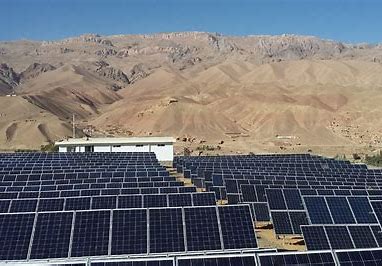FG Lights Up Yobe Teaching Hospital with 400kW Solar Power
FG Lights Up Yobe Teaching Hospital with 400kW Solar Power
By Achimi Muktar
In a groundbreaking move set to redefine healthcare infrastructure in Nigeria, the Federal Government has commissioned the first phase of a 400-kilowatt (kW) solar power plant at the Yobe State University Teaching Hospital in Damaturu — a beacon of light, literally and figuratively, in a region plagued by inconsistent power supply.
The project, part of the Tinubu administration’s ambitious Renewed Hope Agenda, marks a strategic leap in decentralizing energy access and transitioning critical public infrastructure toward renewable energy.
Unveiling the solar installation on behalf of the Minister of Power, Chief Adebayo Adelabu, was the Ministry’s Permanent Secretary, Alhaji Mamuda Mamman. The minister described the project as a “strategic milestone” in Nigeria’s effort to power key sectors sustainably while advancing the country’s climate commitments.
“This solar power plant reaffirms our commitment to delivering sustainable and inclusive energy solutions for socioeconomic growth,” Adelabu stated. “It ensures the hospital operates with reliable and clean energy for critical medical functions such as surgeries, vaccine preservation, and life-saving diagnostics.”
The newly commissioned 400kW solar facility will not only reduce blackouts at the ever-expanding teaching hospital — now a 750-bed capacity institution — but also drastically cut operational costs, allowing for better budget allocation toward patient care and medical resources.
Plans are already underway to expand the plant’s capacity to 1 megawatt (MW) in the coming phases, making it one of the largest renewable installations for any Nigerian health institution.
Yobe State Governor Mai Mala Buni, represented by his deputy Alhaji Idi Gubana, hailed the project as a transformative intervention for the region, where hospitals and schools often battle erratic electricity supply. “This initiative couldn’t have come at a better time,” he noted, praising the federal government for prioritizing the state in its renewable energy rollout.
Perhaps the most immediate beneficiaries of this renewable revolution are women and children. According to Yobe’s Commissioner for Health, Dr. Muhammad Lawan Gana, the solar power will keep critical units running 24/7 — especially the Senator Mamman Ali Maternal and Child Health Complex, home to high-end diagnostic tools like MRI and 3D ultrasound machines.
“This is a clear example of productive collaboration between the federal and state governments to transform public health infrastructure,” Gana said. “Lives will be saved because of this.”
But this isn’t a one-off. The Ministry of Power has confirmed plans to replicate this solar model in hospitals, schools, and other essential institutions across Nigeria, particularly in underserved and off-grid communities.
The move aligns with the Electricity Act 2023, which prioritizes decentralized energy solutions, encourages private sector participation, and introduces incentives like Feed-in Tariffs to boost adoption of renewables.
Beyond lighting up hospitals, the initiative is also expected to create jobs, attract investment into the renewable energy sector, and boost Nigeria’s standing in the global fight against climate change.
From life-saving surgeries to uninterrupted diagnostics and maternal care, clean energy is no longer a luxury — it’s fast becoming the lifeline of public healthcare in Nigeria.
With this solar power plant in Yobe, the federal government has sent a powerful message: the era of darkness in critical infrastructure is ending — and it’s powered by the sun.





















